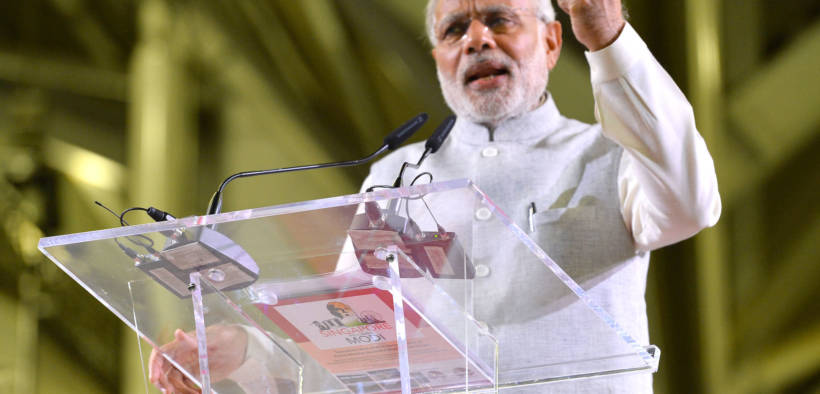American Politicians’ Silence on India is Deafening

American political leaders have largely failed to bring attention to violent oppression in India, the world’s biggest democracy.
India has been racked with turmoil for months, largely inflicted by Prime Minister Narendra Modi and his Hindu nationalist Bharatiya Janata Party (BJP).
In news that has received international headlines, the formerly autonomous region of Kashmir is just having basic internet access restored after a six-month blackout to curb dissidence to the revocation of the region’s autonomous status.
Additionally, India’s controversial Citizenship Amendment Act was passed in December. The new law makes religious belief a criterion for citizenship for Indians who fled the country, and it notably excludes Muslims who fled a pathway to Indian citizenship.
The attack against Muslim-majority Kashmir’s sovereignty and the anti-secular citizenship law coupled with rising hate crimes against Muslims in India has resulted in much criticism of the right-wing Modi government.
But Modi has enjoyed support from many other governments across the globe including a January visit from Brazilian President Jair Bolsonaro, and his “Howdy Modi” trip to America in September where he met with President Donald Trump.
These politicians unsurprisingly are broadly in-line with Modi on many issues, so their lack of criticism is far from unexpected. However, other politicians in the United States have steered clear of the emerging humanitarian crisis occurring in the world’s largest democracy.
American Left?
With a few exceptions American politicians have been largely silent about India, leading some critics to argue that the Democratic Party remains mired in a regressive foreign policy agenda despite its progressive shift on domestic issues.
Senator and Democratic presidential hopeful Bernie Sanders condemned India’s actions in Kashmir. One of Bernie’s rivals, Pete Buttigieg also expressed some vague concern without specifying citizenship laws or anti-Muslim sentiment.
Worse than silence, several Democratic presidential campaigns have staffers who are pro-Modi, including Amit Jani in Senator Joe Biden’s campaign and Buttigieg’s policy director Sonal Shah.
The connections to right-wing governments abroad may seem a tenuous relationship for the Democrats, but it is symbolic of the party’s inability to produce a cogent foreign policy alternative to the Republicans’ long-standing hawkishness.
In reality, Democratic politicians’ cozying up to what many would consider ideologically opposed foreign political parties is a long-standing tradition. For example, President Barack Obama’s 2012 reelection chairman Jim Messina, who went on to work for the British Conservative Party, the conservative Spanish Prime Minister Mariano Rajoy, and right-wing Argentine President Mauricio Macri.
Tulsi
While the Democratic establishment’s ties influence its reluctance to speak out against Modi’s actions, there has been a ray of hope for many on the anti-war left in the form of Hawaii Representative Tulsi Gabbard.
Gabbard has centered her campaign on her opposition to imperialist foreign policy, and she has received praise and condemnation for her aggressive attacks on other Democrats and suing the party’s 2016 presidential nominee Hillary Clinton. However, critics argue that Gabbard’s ties to Modi’s oppressive and militaristic Hindu Nationalist party taints her progressive, anti-war message.
Gabbard has received support from many Hindu-Americans for being one of the most prominent Hindus in American politics. This includes support from Hindu nationalists, including some with ties to Modi’s BJP Party.
Furthermore, Gabbard has spoken at length about Modi, offering praise throughout his time as prime minister.
In 2016 speaking with Quartz, Gabbard said, “Modi impressed me as a person who cares deeply about these issues and as a leader whose example and dedication to the people he serves should be an inspiration to elected officials everywhere.”
Gabbard was given a chance to correct the record on the matter when pressed by Glenn Greenwald on the matter, but she tellingly chose to evade the question, “on that quote I’d have to go back and look at the context of the conversation.”
Critics argue that Gabbard’s ties to Modi’s oppressive and militaristic Hindu Nationalist party taints her progressive, anti-war message.







